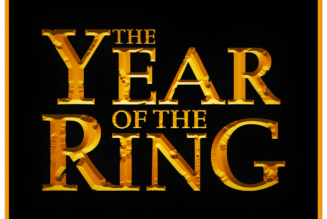Martin Seligman says, “Accomplishment or achievement is often pursued for its own sake, even when it brings no positive emotion, no meaning, and nothing in the way of positive relationships.” As human beings, we set goals and try to accomplish them. To fail to achieve our goals gives rise to a certain kind of unhappiness; to succeed gives rise to an element of happiness.
Jesus’ parable of the talents points to the idea that Christians should make use of their gifts and abilities rather than allow laziness or sloth to get in the way of developing their talents. It would be wrong for someone, simply out of laziness, to fail to achieve what he could have achieved with his God-given potential. The Christian doctor should try to cure patients; the Christian teacher should try to instruct students; the Christian business owner should try to supply goods and services to customers and jobs for employees.
For Christians, whatever we seek to accomplish takes place within the wider framework of love. In other words, some “accomplishments,” such as that of a hit man successfully killing a victim, do not ultimately contribute to our happiness but rather undermine it. However, aside from “achievements” that are intrinsically contrary to love of God and neighbor, seeking to achieve various goals is part of a Christian’s calling.
Accomplishments, I believe, come in two varieties: non-comparative accomplishments and comparative accomplishments. Non-comparative accomplishments are about achieving some goal
that is independent of social comparison with others. Examples include running as fast as you can for three miles, learning to speak German, and writing an excellent short story. Comparative
accomplishments, by contrast, are always embedded in some kind of social ranking with others. These include winning a three-mile race, speaking German better than anyone else in German class, and being awarded the short story prize in a magazine competition. Non-comparative accomplishment is a necessary part of flourishing, imparting a sense of agency and control to the person who is able to bring about the accomplishment. Comparative accomplishment can also bring about a similar sense of agency and control.
We simply cannot buy our way to happiness.
Positive psychology and Christian teaching coincide in setting forth cautions about comparative accomplishment. Positive psychology provides powerful evidence that the pursuit of happiness via upward social comparison (competing for social superiority) is likely to end in disappointment. Many people believe that happiness will be found if they can be better than others in some competition. If only they had more money, more popularity, more fame, or more power than whomever they are comparing themselves with, then they would be happy.
However, success, understood in terms of social comparison with others, tends not to last long. Robin Williams said he felt the joy of winning an Academy Award for only about a week. For others, the glow of achievement is even more short-lived. In his book The Pursuit of Perfect, Tal Ben-Shahar writes, “On the evening of May 31st, 1987, I became Israel’s youngest ever national squash champion. I was thrilled to win the championship and felt truly happy. For about three hours. And then I began to think that this accomplishment wasn’t actually very significant.” Even those who succeed in being the very best in terms of social comparison do not find lasting happiness in their success, for they may end up competing against themselves. Sonja Lyubomirsky writes: “After Thriller became the best-selling album of all time, Michael Jackson declared that he would not be satisfied unless his next album sold twice as many copies. In fact, it sold 70 percent fewer. Most musicians would be thrilled with sales of thirty million, but for Jackson the contrast with his earlier success was stinging.” The arrival fallacy describes the phenomenon that once people achieve their goals, the happiness that they thought would arrive and last proves surprisingly fleeting. Like the horizon that always eludes our grasp, the achievement of superiority in social comparison does not bring lasting satisfaction but simply gives way to yet another goal.
Christian teaching can enhance happiness by warning against such social comparison, specifically through the Tenth Commandment: you shall not covet your neighbor’s goods. I never really understood the importance of this commandment until I studied positive psychology. I thought, “What does it matter if I wish to have what my neighbor has? Who does that harm?” It turns out
that coveting my neighbor’s goods harms me because in order to covet I must first engage in upward social comparison. To covet our neighbor’s goods, we must first compare our possessions to our neighbor’s material goods and decide that what we have does not measure up. Christian warnings about greed, especially for money, contribute to the happiness of the Christian by discouraging upward social comparison and thus preventing the needless disappointment such comparisons can bring.
In our culture, many people believe that happiness will be found by either spending or possessing money. Many scholars in positive psychology have investigated the relationship between money and happiness. They have found that increases in wealth do significantly increase happiness, but only if one does not have sufficient material goods for basic living. The person who does not eat three meals a day or sleep in a bed or wear warm clothes is made significantly more happy by the acquisition of these necessities.
However, once a person’s basic needs are met, researchers found no increase in reported happiness with an increase in wealth. David Myers points out in his book The Pursuit of Happiness that over the last fifty years, the average American has become much more wealthy. Americans tend to live in bigger houses, own more cars and televisions, and have greater disposable income than ever before, yet the average American reports being no more happy than the average American of fifty years ago. After the initial shock wears off, lottery winners report no greater levels of happiness than they had before winning. Fortune 500 CEOs are no more happy, and often are less happy, than average people. Almost everyone says that they need 10 to 15 percent more money to be “comfortable.” But as people become more wealthy, they adjust to the new level of affluence, and then they believe they need even more money to be “comfortable.” Those who may have been deaf to the Gospel’s warnings against greed will find that the teachings of Scripture are supported by a finding of positive psychology, which turns out to be a kind of natural moral theology: we simply cannot buy our way to happiness.
The Christian way of life fulfills the understanding of happiness proposed by Martin Seligman’s PERMA: positive emotion, engagement, relationships, meaning, and achievement. Religious belief and practice are associated with high levels of positive emotion. Christians are called to engage with the world by making use of their signature strengths or virtues. The fundamental Christian law is the law of love for God and neighbor, which fosters positive relationships. Christians can find lasting meaning in making a contribution to God’s kingdom, which makes a difference not just now but eternally. And, finally, Christians are called to pursue meaningful achievements and to avoid traps such as greed and social comparison, as these can rob us of the satisfaction we experience when we accomplish our goals, and distract us from discovering where true happiness is found.










